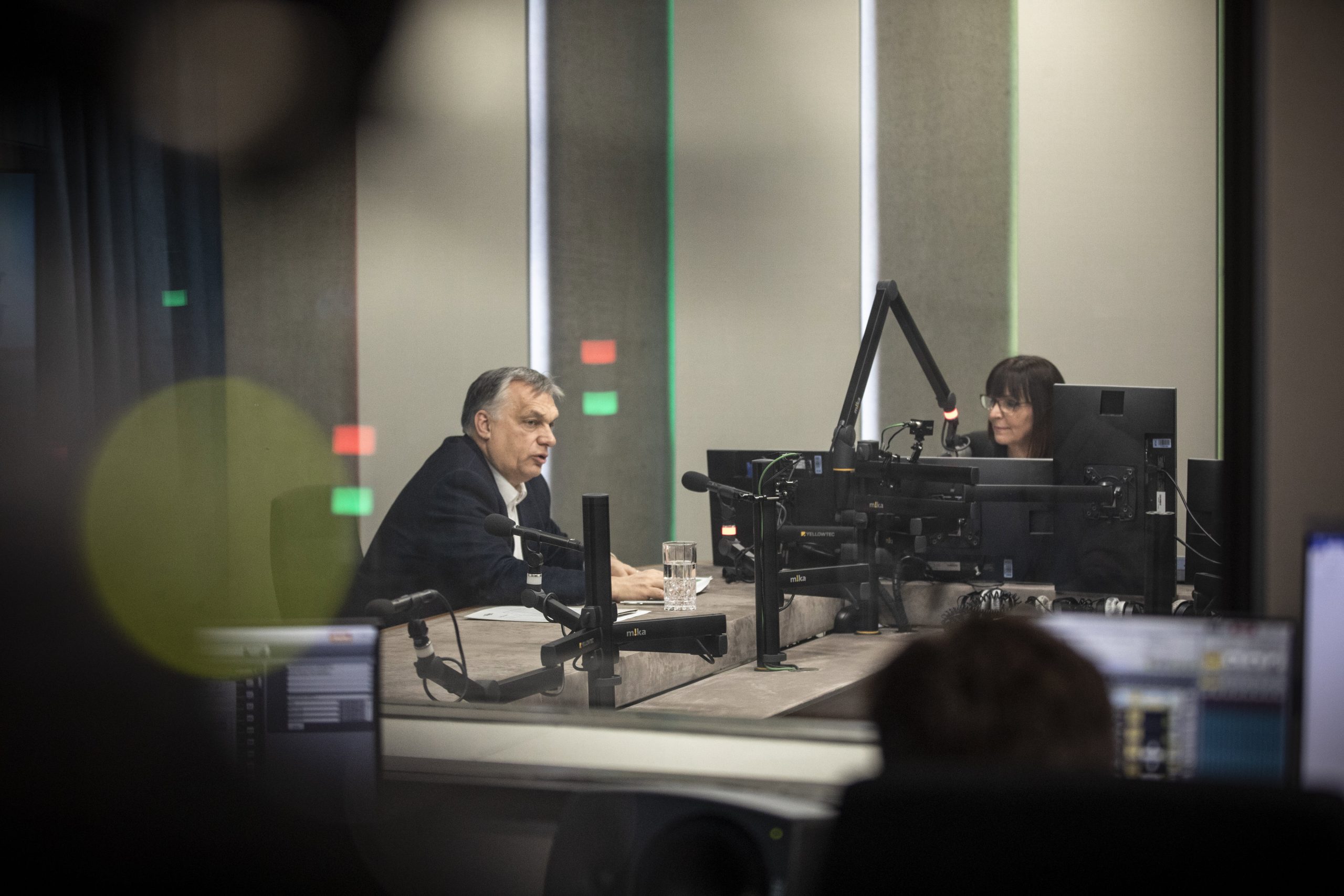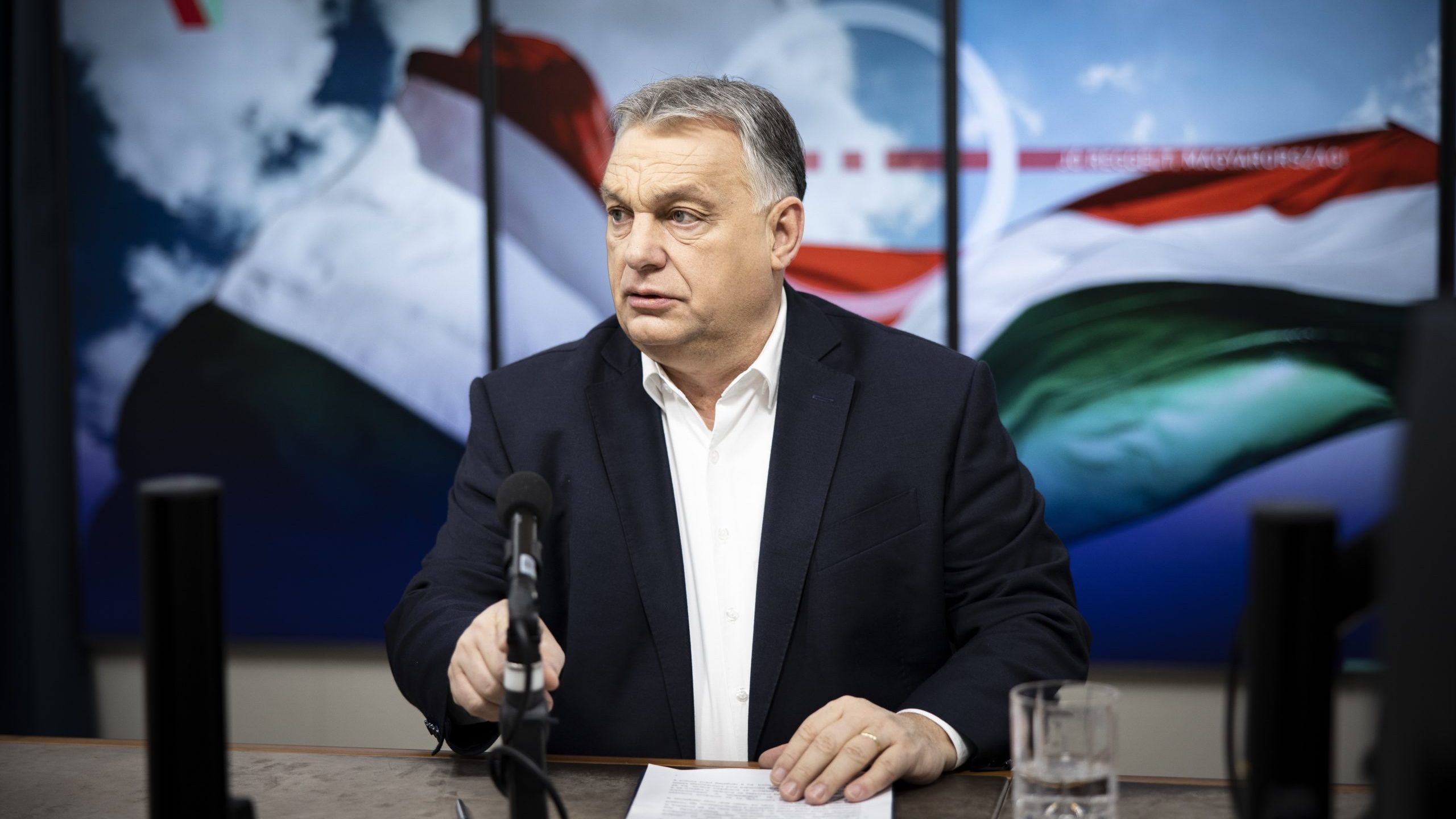
Mr Orbán also said there is a realistic chance that on 19 April nursery, elementary and secondary schools may reopen.
He highlighted that as queues could develop outside shops, they will consider extending the opening hours of retail outlets, and parallel with this, the beginning of the curfew hours. The Operational Group is debating the detailed rules also at present, he added.
The Prime Minister said the question is not when we reach the peak of the third wave, but how swiftly we will start on a downward trend; however, no one can tell this for sure. On Thursday, 275 persons died, there are 11,823 persons in hospital, including 1,480 requiring assisted ventilation, he said. He observed that there are another 10,343 free beds and 1,693 more ventilators.
Five hundred volunteers have offered their services, and 1,200 medical students are also involved in the defence operations. For the time being, the need for involving commuters, especially those working near the Western border, has not yet emerged, he added.
Mr Orbán stressed this is a difficult period, at present, we are experiencing the most difficult weeks of the epidemic. We are going through a third wave because the British mutation of the virus has become dominant, and it is capable of infecting three times more people. He asked young people to observe the rules, not only because of their parents and grandparents, but also become of themselves.
Hungary would have the capacity to vaccinate more people, but there are not enough vaccines. At the EU summit that ended on Thursday evening, one could clearly see that countries that did not take timely action to also secure Eastern vaccines and are only relying on the vaccines ordered by Brussels “are far behind us,” he said.
He took the view that they will be able to vaccinate people in the highest numbers in April and May.
According to Mr Orbán, it was a flawed decision that EU prime ministers left the procurement of vaccines from Western pharmaceutical companies to Brussels. Instead, they should have said that each country should negotiate for itself, but they believed that together they could be more successful, he recalled. He added that Brussels concentrated more on the price, despite the fact that compared with human lives this is only secondary.
He recalled that Minister of Foreign Affairs and Trade Péter Szijjártó warned already in November that there could be problems, and this is why they started negotiating with Russia and China. Those who are only just beginning these negotiations will have to join the queue, of which Hungary is already at the head, he explained.
The Prime Minister said there are 400,000 vaccines available for administration, 1.8 million people have already been vaccinated, and as many as 594,000 persons have already received their second dose. There are 250,000 Russian vaccines in storage, these have yet to be released for administration, and there are another 517,000 doses in storage reserved for second doses, he said.
He also mentioned regarding the opening of shops that they could switch over to a square metre-based regulation; one person per every ten square metres could be allowed to be present on shop premises, but the details have yet to be determined.
He said he insists that restarting of any kind is out of the question until all persons over the age of 65 who have registered have been vaccinated. 71 per cent of this group has already been inoculated, and they are making good progress, he added.
The Prime Minister said expectant mothers can now be vaccinated with the Pfizer and Moderna vaccines, and he therefore asked them, too, to register.
Regarding schools, he said people working in schools must be vaccinated for reopening. There are 102,000 registered school workers, and 20,000 of them have already been inoculated as it was their turn. The others, too, must be vaccinated before institutions reopen, this can be achieved by 10 April, and nursery, elementary and secondary schools could reopen on the 19th, he explained.
Mr Orbán highlighted that in Hungary vaccination capacities are high, and general practitioners are doing a great job in the administration of the vaccines. With a very few exceptions, general practitioners are making superhuman efforts, and their contribution will be required also during the period ahead, he said.
He also said everyone is tired and frustrated, and would like to be freed from the present situation, and also for this reason they would like to give people safe reference points that they can rely and count on. In modern democracy, everyone is free to say what they like; however, the Chief Medical Officer and the government provide reliable and authentic information at all times, he stressed.
He observed that they are managing databases featuring hundreds of thousands or even millions of data, and in such enormous databases errors are inevitable.
He confirmed that “we will have a free summer,” though there could be events where attendance will only be allowed with a vaccination certificate.

